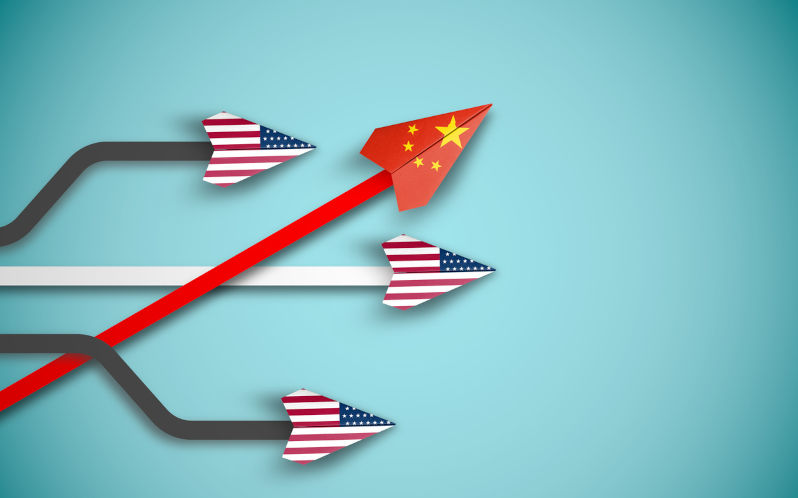
With the re-opening of China and with the ending of Covid restrictions, a new confidence seems to be surging through the country. While the next two years are seen to be a particularly dangerous time, with the real prospect of armed conflict with the US, beyond that it is felt that China’s time will have come. Australians are now largely denied this view since the timorous Australian media is no longer present in China.
At ten pm on Sunday, stuck in a massive traffic jam on Beijing’s second ring road, it was hard not to think the reality of China and the place as it is thought about from abroad are parallel universes.
The China of burgeoning middle-class consumption, a decade of 5 per cent plus economic growth, the biggest market for all East Asia and Oceania, and the pivotal point for global supply chains is unrecognisable from the China of Covid, severe economic disruption, imploding property sector, and local governments mired in debt.
The China Collapse propagators have always thrived on wishful thinking, but as the US moves more decisively towards containing China and whistles up a posse of allies to help the cause, it could lead to dangerous strategic miscalculation.
Back in China after 17 months absence, China is not going anywhere other than to become stronger and more powerful. Travelling in Shandong Province (pop.102m) and then by fast train to Beijing at 305 k/h, it seems as if the Chinese economy is resurging. Vast construction sites are populated by 50 plus cranes working, new high-speed rail lines are going up and eight-lane highways are being rolled out.
These are of course only anecdotal observations, but they give texture and colour to dry numbers such as pursuing a five per cent plus GDP growth rate. Equally anecdotal are conversations one has, but they also provide a feel for what is happening, something Australians are now largely denied since, timorously, Australian media is no longer present in China.
With the re-opening of China and with the ending of Covid restrictions, a new confidence seems to be surging through the country. Contemporary art exhibitions are being launched across Beijing, new bars, restaurants are also popping up. Cinemas are full. When speaking with people who are well placed within the political system, the sense is one of confidence not only in the economy but in China’s ability to weather US containment.
While the next two years are seen to be a particularly dangerous time, with the real prospect of armed conflict with the US, beyond that it is felt that China’s time will have come. It is felt that China’s strength is in its investments in engineering, advanced manufacturing, artificial intelligence, application of 5G, and green energy.
In Shandong Province, longwall underground coal mines are operated remotely by two engineers sitting at computer screens on the surface using Huawei’s 5G. An energy company employing 220,000 staff has digitalised and centralised its entire operations and is now paperless. A green energy centre near Changsha in Hunan Province reportedly employees 10,000 engineers.
The US led global semi-conductor ban on exports to China is clearly seen as a head wind, but as China is the world’s biggest market it will slow development outside China as Japan, South Korea and the Netherlands lose their main market, and hence drivers of innovation and investment. China will divert even more resources into this sector to catch up by old-fashioned import substitution. In view of the huge disparity now in China’s favour in engineering capacity it is expected that the US bans will turn out to be counterproductive.
Meanwhile, obedient robots assist with clearing mountains of dishes from Chinese banquet tables, deliver packages to hotel rooms and continually polishing lobby floors. An innovation at Beijing’s 798 art district, is a robotic cake shop that tours the crowded laneways selling bakery items paid for by smart phones and QR codes. Cash and credit cards have all but disappeared. Of course, none of this existed at the time the Australian media vacated China.
One Chinese business executive in Beijing told me that after looking at several different manufacturing sites around the world, the company decided to build it after all in China. ‘In China things happen and get done. If the phone rings at 11 pm it is answered. People won’t say it is the weekend I’ll get around to it on Monday. Ask for something and it will be actioned, not delayed.’
In 1960, Walt Rostow published his book the Stages of Economic Growth. Later he was a member of President Kennedy’s ‘Best and the Brightest Group’ of advisers that deeply embroiled the US in the immoral and futile Vietnam War. As controversial as his analysis of the process of economic growth was, it has a certain relevance today to understanding China’s economic development. His fourth stage, after ‘take-off’, when economies reach maturity was what he called the ‘the age of high-mass consumption’, well describes China today.
China has reached that point of development underpinned by the rapid growth of advanced manufacturing. Gone to Vietnam, Bangladesh, and Cambodia, and elsewhere, are the low value-added industries of toys, cigarette lighters and cheap clothing which have been replaced by advanced, digitally controlled, manufacturing. US generals are now complaining that China can build naval vessels faster and in bigger numbers than the US.
China leads the world in electric vehicles. Tesla is expanding its production in China. Green energy is a major priority, not least because China now so deeply mistrusts the West that it is determined for security reasons to slash its reliance on imported oil and LNG.
The success of the US alliance to sanction Russia over its invasion of Ukraine has made Beijing even more determined to find domestic sources of energy, which includes green energy.
The complete breakdown in trust between Beijing and Washington has made the Chinese leadership intent on decoupling from the West. A containment policy against China is a lose-lose strategy. The Chinese leadership seem convinced that its advanced manufacturing already has the lead, and it will continue to open an even bigger gap. This week’s National Peoples’ Congress will focus on these themes.
A view is now entrenched that the US is determined to provoke conflict over Taiwan. Ironically, that could make conflict even less likely as the Chinese leadership will not allow themselves to be drawn into a suicidal action. Instead, the strategy will likely be bellicose language while building national resilience and self-reliance based on outcompeting the US economically and winning the long game.
In these circumstances, the Australian Government will come under even more pressure from the US to join in provoking China. The US’ campaign of interference in Australia is well-oiled. It has just been ramped up with SMH’s Red Threat series published this week.



